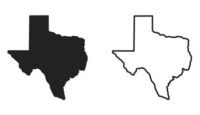We shall examine social media’s drawbacks in education in this essay, highlighting the difficulties it poses for both students and teachers.
Distraction from Learning Goals
This constant distraction can hinder their ability to focus on their learning goals and absorb information effectively. With notifications constantly pinging, it becomes challenging to maintain concentration and engage with educational content.
Loss of Productive Time
It is simple for students to lose track of time when reading messages and taking part in discussions due to the addictive nature of social media sites. The ability of a student to complete homework, prepare for examinations, and do well in class can all be significantly impacted by this loss of productive time.Social media time could be better spent learning and expanding one’s knowledge.
Negative Impact on Mental Health
Students’ mental health may suffer as a result of constant exposure to social media. Anxiety and feelings of inadequacy can result from the pressure to maintain a well managed online identity and from FOMO (fear of missing out). Cyberbullying and online harassment are also prevalent issues, causing emotional distress among students. These mental health concerns can hinder their academic performance and overall well-being.
Spread of Misinformation
Students may come across inaccurate information on social media, leading to misconceptions and incorrect learning. Educators face the challenge of helping students discern credible sources from unreliable ones, which can be a daunting task.
Decreased Face-to-Face Communication Skills
Social media’s prevalence can lead to decreased face-to-face communication skills among students
. Students may have trouble with in-person communication, especially public speaking and interpersonal relationships, because the majority of interactions take place online. These abilities are crucial for both academic success and personal and professional development.
Privacy Concerns
Another significant disadvantage of social media in education is the issue of privacy. Students often share personal information online without fully understanding the potential consequences.
Academic Dishonesty
The easy access to information on social media can tempt students into academic dishonesty. Plagiarism and cheating have become more accessible, as students can readily find pre-written essays and answers to assignments online. This not only undermines the educational process but also devalues the importance of critical thinking and independent learning.
Impact on Sleep Patterns
The patterns of sleep that students experience can be hampered by excessive social media use, particularly before bed. The hormone that controls sleep, melatonin, is prevented from being produced by screens’ blue light. Fatigue, impaired cognitive function, and eventually poorer academic achievement can result from insufficient sleep.
Misinformation and Fake News:
inaccurate information is being distributed widely thanks to social media platforms. This includes content that is inaccurate or deceptive. This material may contain mistakes that were made intentionally or accidentally.
Confirmation Bias: Social media algorithms frequently present users with content that supports their preexisting preferences and ideas.
Users may find it challenging to acquire other viewpoints and perform crucial information evaluation as a result.
Misleading Headlines & Clickbait: To attract attention, many social media posts use dramatic or deceptive headlines. Without fully reading the posts, users might share them, which could propagate false information.
Deepfakes and altered Media: The ability to produce convincing deepfake movies and altered photos has become easier because to technological advancements.
This enables incorrect information to spread without being verified and creates the impression that it is true.
. The improvement of research and critical thinking abilities is hampered by this.
Shortened Attention Spans: Constant scrolling and rapid-fire content consumption on social media can reduce attention spans, making it difficult for pupils to concentrate and engage in in-depth study.
Loss of Offline Learning Possibilities: A disproportionate reliance on social media for learning can lead to the loss of offline learning experiences including practical experiments, group discussions, and physical activities.
Teacher-Student Boundaries: Social media makes it harder for educators to distinguish between their personal and professional life. It might be difficult to maintain appropriate boundaries between teachers and students when communication takes place on social media.
Conclusion
Additionally, setting boundaries and promoting healthy technology usage habits can help students strike a balance between their online and offline lives.the disadvantages of social media are evident in their potential to foster cyberbullying, compromise privacy, and contribute to mental health issues. The spread of misinformation, addiction concerns, and the impact on real-world relationships further underscore the drawbacks. Striking a balance between connectivity and responsible usage is essential. To mitigate these issues, individuals must exercise digital literacy, platforms should prioritize user well-being, and society should engage in conversations about ethical online conduct. Recognizing and addressing the disadvantages ensures a more mindful and constructive integration of social media into our lives, promoting a healthier digital landscape.















